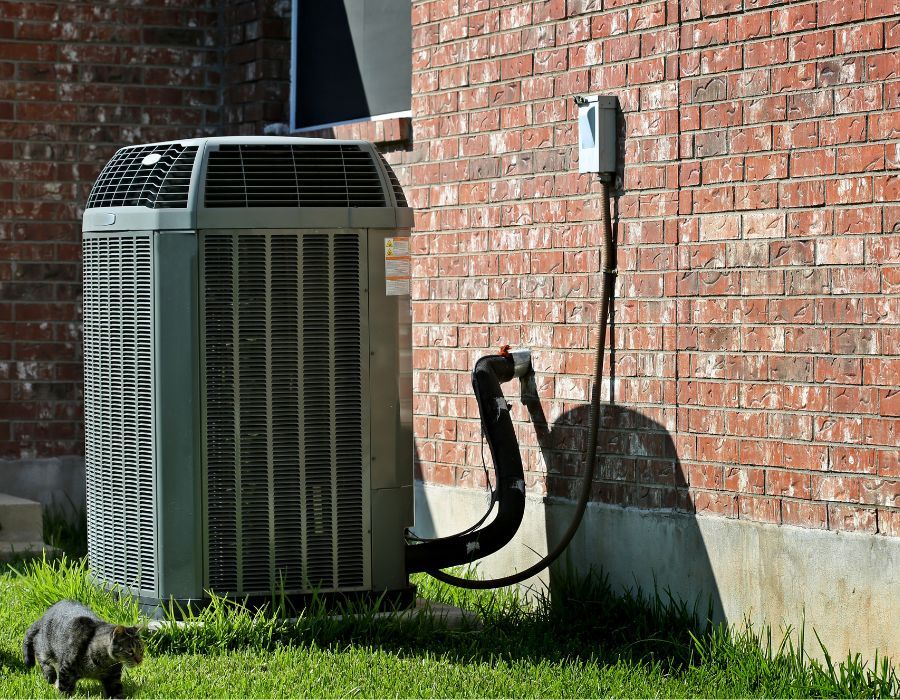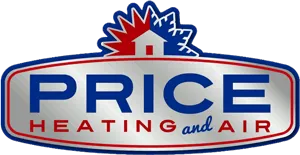What is a BTU?

When I moved into a new home, I noticed that the HVAC system wasn’t keeping up during the summer. Some rooms were too hot, while others were freezing. After some research, I learned the problem was the system’s BTU rating—it was too small for the size of my home.
A BTU, or British Thermal Unit, is a measurement of energy. It represents the amount of heat needed to raise the temperature of one pound of water by one degree Fahrenheit. In HVAC systems, BTUs measure the heating or cooling capacity of equipment, such as furnaces, air conditioners, and heat pumps.
Understanding BTUs is crucial when selecting an HVAC system for your home. A system’s BTU rating determines how efficiently it can heat or cool a space. Choosing the right BTU rating ensures comfort, energy efficiency, and reduced operational costs.
Table of Contents
ToggleWhy Are BTUs Important?
BTUs measure how much energy an HVAC system uses to heat or cool your home. This helps you evaluate whether the system is powerful enough for your space.
A system with too few BTUs won’t heat or cool effectively, leading to uneven temperatures and overwork. On the other hand, an oversized system with too many BTUs can waste energy and cause frequent cycling, reducing its lifespan.
The BTU rating directly impacts your comfort and energy bills. Choosing the right capacity avoids unnecessary expenses and ensures consistent temperatures throughout your home.
How to Determine the Right BTU Rating for Your Home
The appropriate BTU rating for your home depends on multiple factors. Each aspect contributes to how much heating or cooling your space requires.
1. Home Size
The square footage of your home plays a big role. Larger homes need systems with higher BTU ratings to evenly heat or cool the space. For example, a 1,000-square-foot home might need about 20,000 to 30,000 BTUs for heating, while cooling typically requires around 20 BTUs per square foot.
2. Insulation
Well-insulated homes retain heat and cool air better, reducing the need for higher BTUs. Homes with poor insulation lose energy quickly, requiring more powerful systems to compensate.
3. Climate and Ceiling Height
Living in an area with seasonal temperature swings, I realized that climate matters. Muscle Shoals, AL, chilly winters and warm summers demand an HVAC system that can handle both extremes. Ceiling height also affects energy needs—higher ceilings mean more air volume, which requires more BTUs to maintain the same temperature.
BTUs and HVAC Efficiency
While BTUs measure capacity, efficiency ratings like SEER (Seasonal Energy Efficiency Ratio) and AFUE (Annual Fuel Utilization Efficiency) measure how effectively a system uses energy.
A system with the right BTU rating and a high-efficiency rating will perform better and cost less to operate. For example, a high-SEER air conditioner uses less electricity to cool the same space compared to a lower-SEER unit with the same BTU rating.
Proper maintenance also impacts efficiency. Even a system with the ideal BTU rating can underperform if filters are clogged or parts are worn.
Standard BTU Ratings for HVAC Systems
Understanding BTU ratings can help you choose the right HVAC system for your home. Different systems have specific BTU ranges designed for particular spaces or purposes. Here’s a detailed breakdown of common BTU ratings across various HVAC systems:
| System Type | Typical BTU Range | Ideal For |
| Window Air Conditioners | 5,000–15,000 BTUs | Small rooms, apartments, or single spaces; typically covers up to 500 sq. ft. |
| Portable Air Conditioners | 8,000–14,000 BTUs | Spaces without central AC, temporary cooling for small to medium-sized rooms. |
| Central Air Conditioning | 18,000–60,000 BTUs | Whole-home cooling; suitable for homes ranging from 1,000 to 3,500 sq. ft. |
| Furnaces | 40,000–120,000 BTUs | Heating homes of various sizes, from small cottages to large multi-story houses. |
| Ductless Mini-Split Systems | 6,000–36,000 BTUs | Zoned heating/cooling for specific areas or additions without ductwork. |
| Heat Pumps | 12,000–60,000 BTUs | Heating and cooling efficiently, ideal for moderate climates and medium to large homes. |
| Geothermal Systems | 24,000–72,000+ BTUs | High-efficiency heating/cooling for large homes; relies on consistent ground temperatures. |
Choosing the Right BTU Rating
Selecting the right BTU rating involves more than square footage. A professional load calculation considers multiple factors to ensure accuracy. These factors include:
- Windows and Doors: The number and quality of windows and doors impact heat gain and loss.
- Orientation: Homes facing the sun for most of the day require higher cooling BTUs.
- Household Habits: Activities like cooking and the number of occupants affect internal heat generation.
An HVAC professional evaluates these elements to recommend the best BTU rating for your system.
Upgrading Your HVAC System
If your home struggles to stay warm in winter or cool in summer, your HVAC system might not be keeping up. Upgrading to a properly sized unit can improve comfort, cut energy bills, and make your home more efficient.
Modern systems with features like variable speed motors and smart thermostats adjust energy output to match your home’s needs. This ensures consistent temperatures without wasting energy, saving you money in the long run.
Improving your home’s insulation or sealing ductwork can further enhance efficiency. These upgrades reduce energy loss and complement a high-performance HVAC system, ensuring every room feels just right.
Why Regular Maintenance Matters
Even the best HVAC system needs regular upkeep. Without it, performance can drop, energy bills can rise, and costly repairs may follow.
Changing air filters every few months keeps airflow steady and reduces strain on your system, prolonging the need for an expensive AC repair. Annual inspections catch issues like leaks or worn parts before they become expensive problems.
Routine maintenance not only extends your system’s lifespan but also keeps your home consistently comfortable. It’s a simple way to protect your investment and avoid unnecessary stress.
Trust Price Heating & Air
When it’s time to upgrade or maintain your HVAC system, turn to Price Heating & Air in Muscle Shoals. Their team understands the local climate and can recommend solutions tailored to your home.
Whether it’s installing a new energy-efficient unit, sealing ducts, or performing routine maintenance, they deliver reliable, professional service. With over 300 5-star reviews and 24/7 availability, they’re a trusted name in the community.
Contact Price Heating & Air today to ensure your home stays comfortable and efficient year-round. Let their experts help you make the most of your HVAC system.
FAQ
What does BTU stand for?
BTU stands for British Thermal Unit. It is a measurement of energy used to quantify the amount of heat required to raise the temperature of one pound of water by one degree Fahrenheit.
Why is BTU important in heating and cooling systems?
BTU helps measure the heating or cooling capacity of appliances like furnaces, air conditioners, and heaters, ensuring you choose the right size and power for your space.
How do I determine the right BTU for my home?
The ideal BTU depends on the size of your space, insulation, climate, and other factors. Consulting a professional or using a BTU calculator can help.
